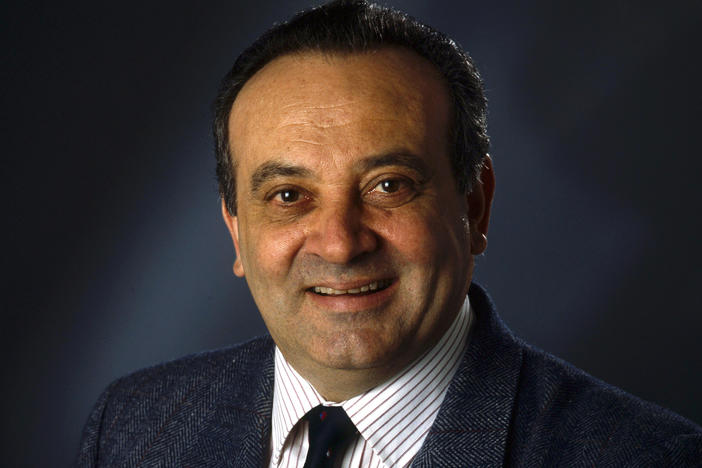Section Branding
Header Content
On A Remote Island, A Music School Flourishes
Primary Content
As pianist Mahani Teave was poised to launch her international career, she remembered the moment when the first piano arrived on her remote island. It was 1992, she was nine years old and the instrument landed on Rapa Nui, or Easter Island as it was named by Europeans. Best known for its mysterious, sentinel-like stone statues, the island lies some 2000 miles off the coast of Chile.
"I had to go, break all the rules, and just go straight to this lady's house and see this piano," Teave told filmmaker John Forsen, who directed Song of Rapa Nui, a new documentary about the pianist and her mercurial career. Teave took her first lessons on that piano. They cemented her love for the instrument and inspired the young musician to eventually leave her island home for years of study and dreams of becoming a star soloist. Her debut album was released earlier this year.
Teave's departure for the mainland, just a few months after those lessons, came at the suggestion of Roberto Bravo, a well-known pianist from Chile who visited the island and heard her play. Still just nine years old, she enrolled in the Austral University of Chile in Valdivia.
As a teenager, awards began to roll in, including a first place finish at the Claudio Arrau Piano Competition. After nine years, Teave left Valdivia with the intent to study in Europe, but a stop off in the U.S. turned into a six-year stint, studying at the Cleveland Institute of Music as a pupil of pianist Sergei Babayan. From there she was off to Berlin to build her performing career under the wing of Fabio Bidini.
"The future of Mahani is only in her hands," Bidini says in the documentary. "She's a wonderful package – musically, as a person, the charisma that she has in public, the luminosity and the power of concentration that she has in public is absolutely first class."
But after four years in Berlin, Teave began feel the island tugging on her heart and her head. She began to think of giving up a promising career that was barely off the ground.
"I could have stayed there perfectly and would have also been very happy," Teave says. "But there was this umbilical cord connecting me to the island and saying, 'Mahani, you had all these opportunities. There are lots of other children who are waiting to have them too, and you only can do this.'"
The memories of her youthful hunger to learn music haunted her. She recalled the pain felt when good teachers appeared on the island, then suddenly left. "It would get cut off and cut off and it was breaking children's dreams over and over again," she says.
Teave felt an urge to change her homeland. She moved back to Chile first because, once again, the island lacked a single piano. After a three-year struggle with funding and logistics, a pair of upright pianos were dismantled and flown to Rapa Nui in 2011. With instruments in hand, Teave's dream of building a free music school for kids was beginning to take shape.
With donated land, instruments and crowd-sourced funding, Teave, along with her partner Enrique Icka, a construction engineer, broke ground on their Toki School of Music in 2014. From the start, they envisioned a sustainable, yet stylish building – "an earth ship in the shape of an eight-petaled flower."
Eighty volunteers from around the world came to help build the structure. Materials were right at their fingertips. Rapa Nui, as it turns out, sits in a part of the Pacific Ocean that naturally traps garbage from thousands of miles. The school is partly constructed from over 2,500 tires and 60,000 cans and bottles. Solar panels soak up energy on the roof, while cisterns collect rain water and the surrounding gardens provide food.
In 2016, the Toki School of Music officially opened. The island's children learn more than just Mozart and Beethoven. Teave includes her island's traditional music and dance in the curriculum.
"I find great joy when I see the children learning and sharing amongst each other," she says. "And when I think of this space, it's a space we would have liked to have had as children to study. How many kids will remember this as a highlight of their youth, and maybe they'll continue on."
Teave, at age 37, may have given up a successful career as a concert pianist, but through her hard won ambition she gained something more — the satisfaction of supporting the dreams of children, hungry to learn music.
Copyright 2021 NPR. To see more, visit https://www.npr.org.
Bottom Content




